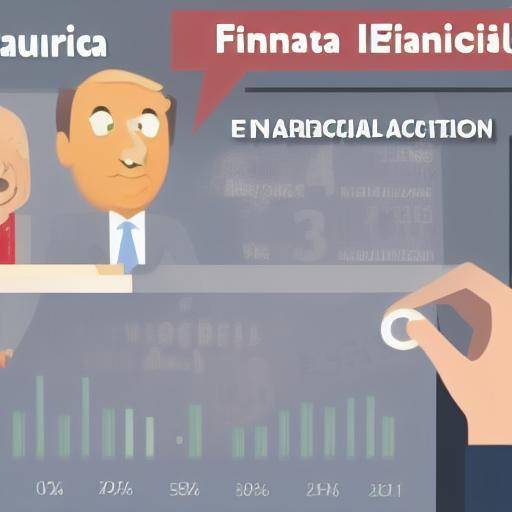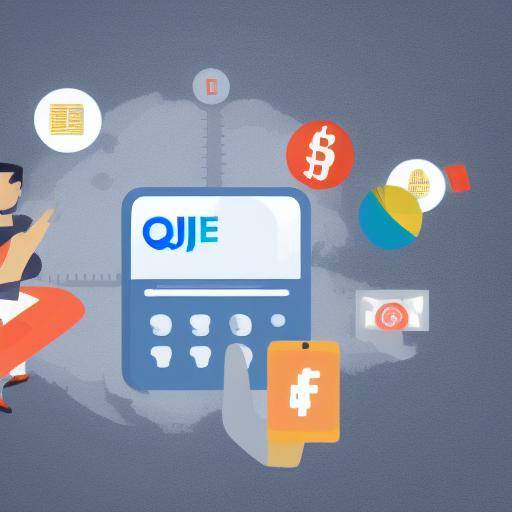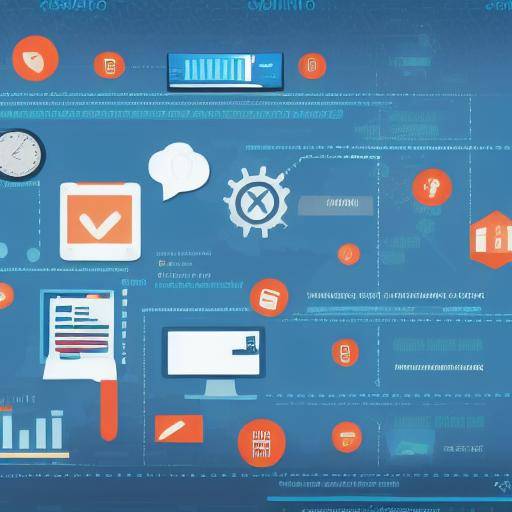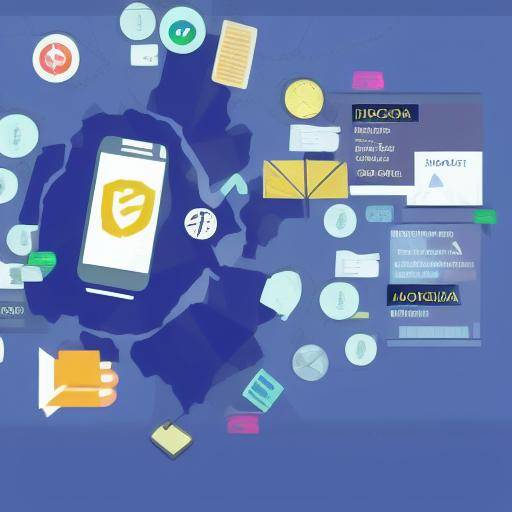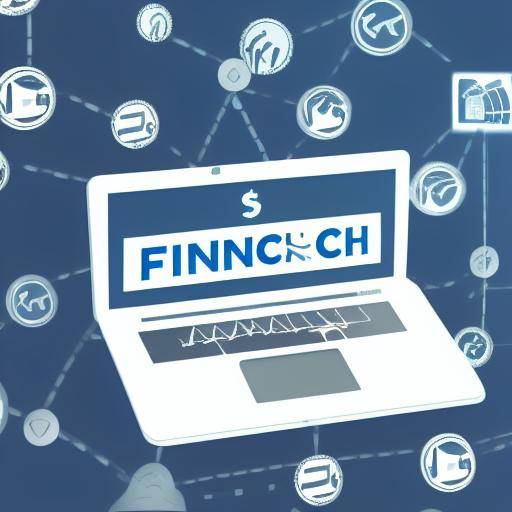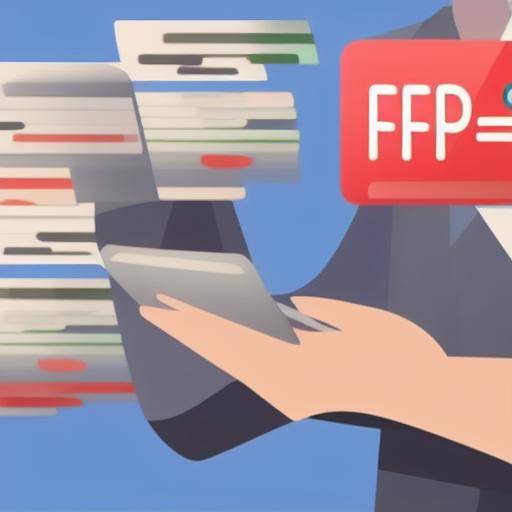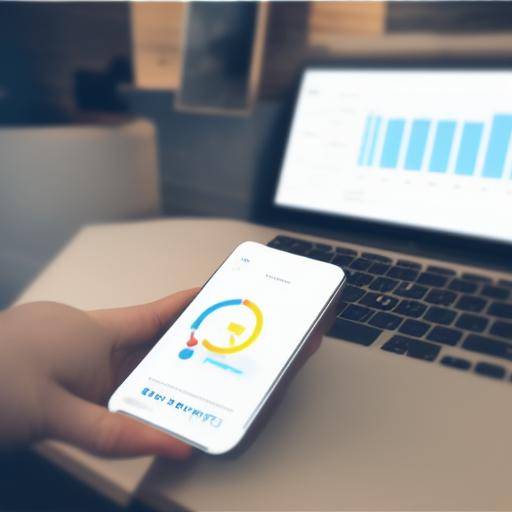
In the digital era, financial technology, known as Fintech, has revolutionized the way we manage our finances. Its impact extends beyond financial transactions, improving people's financial education. In this article, we will explore how knowledge, accessibility and innovation in Fintech are contributing to this important change in society.
Introduction
Financial education is essential to ensure that people make informed decisions about their money and plan their economic future adequately. However, many people lack the basic skills to efficiently manage their finances. This is where financial technology, or Fintech, comes into play.
In this article, we will analyze the impact of financial technology on people's financial education. We will explore how knowledge, accessibility and innovation in the Fintech field are transforming the way people manage their personal finances.
History and Background
Financial technology has experienced rapid growth in recent years, but its roots go back decades. From the first electronic payment systems to the emergence of cryptocurrencies, the evolution of the Fintech has been significant.
In the 1950s, the first electronic data processing systems for the financial sector began to emerge. Subsequently, with the popularization of the Internet in the 1990s, the financial landscape experienced a revolution with the arrival of online financial services. Since then, Fintech has continued to evolve, covering a wide range of financial services, including online banking, peer-to-peer loans, crowdfunding, automated financial advice (robo-advisors), and much more.
Analysis in Deep
The Fintech has brought with it a number of significant benefits for financial education. Accessibility to financial services has increased considerably, allowing people from all geographical areas and socio-economic levels to access tools and resources that were previously limited to a few.
With regard to innovation, Fintech has introduced new ways of teaching and learning about finance. Mobile applications, online platforms and financial management tools have facilitated access to relevant information and simplified understanding of financial concepts, making learning more interactive and attractive.
Comprehensive review
The adoption of Fintech in financial education has led to the implementation of programs and platforms specifically designed to improve the financial knowledge of individuals. These initiatives range from online courses to educational games that seek to teach financial concepts in a dynamic and practical way.
The possibility of comparing different options, such as interest rates, investment returns and loan costs, before making important financial decisions, has changed the way people manage their money. This level of transparency and ease of access to information has paved the way for increased financial literacy.
Comparative analysis
Regarding accessibility, Fintech has democratized access to financial tools that were previously reserved for a select group of individuals with advanced financial knowledge. The possibility of transactions, investments and payments from a mobile device, for example, has allowed more people to participate actively in the financial system.
With regard to innovation, Fintech has brought financial education beyond traditional concepts. Interactive financial education platforms, artificial intelligence applied to financial advice and budget management simulators are just some of the innovations that have transformed the way people learn about finance.
Practical Tips and Accessible Recommendations
If you are looking to improve your financial education through the Fintech, here are some practical recommendations to start:
- Explore Financial Management Applications: Discover mobile apps that allow you to keep a detailed record of your expenses and income. These tools offer clear visualizations of your financial habits and help you set realistic savings goals.
- Subscribe to Online Courses: Find online platforms that offer free or low cost courses on financial education. Take advantage of the flexibility and comfort of these courses to learn at your own pace.
- Use Investment Simulators: Explore investment simulators that allow you to experiment with different investment scenarios without risking real money. This practice will help you understand the risks and returns associated with different investment options.
- Subscribe to Newsletters and Financial Blogs: Stay up-to-date on financial trends and expert advice by signing up for relevant financial newsletters and blogs. The updated information will help you make more informed financial decisions.
Industry Perspectives and Expert Reviews
The opinions of experts in the Fintech industry are fundamental to understanding the impact of this technology on financial education. Financial and academic experts have praised Fintech for its ability to empower people in managing their finances, emphasizing the importance of transparency and accessibility in informed financial decision-making.
Miguel Angel Spain, a professor of financial economy, says: "The Fintech has democratized access to financial services and has improved the financial literacy of the population in general. Innovative tools and platforms offer a more intuitive and attractive way to learn about finance, which has a positive impact on responsible financial decision-making."
Case Studies and Real Life Applications
The implementation of Fintech platforms in financial education has proven to be effective through several case studies. For example, a financial technology company developed an educational game for young people that teaches basic financial concepts in an interactive and fun way. This approach has proven to be highly effective in attracting young people ' s attention and improving their understanding of financial issues.
Future Trends and Predictions
Looking forward, trends in Fintech aim at greater personalization and adaptation to individual financial education needs. Artificial intelligence and automatic learning will be used to provide highly personalized financial advice, allowing people to make more informed and accurate financial decisions.
The expansion of financial education through Fintech will continue to play a crucial role in improving global financial literacy. More people are expected to benefit from technological advances that will facilitate greater access to financial education and ultimately promote greater financial stability at the individual and collective levels.
Conclusion
In short, Fintech is playing a key role in improving financial education through promoting knowledge, accessibility and innovation. The ability of financial technologies to bring financial education to a wider audience and make it more attractive and accessible is transforming the way people manage their money.
As individuals, it is crucial to take advantage of the opportunities offered by Fintech to improve our financial education and make informed decisions. The combination of knowledge, accessibility and innovation in the Fintech represents a significant change in the way we relate to our finances, paving the way for a more secure and stable financial future for all.
Frequently asked questions
How can I begin to educate myself financially through the Fintech?
There are various forms of financially educating you through the Fintech. You can explore mobile financial management applications, enroll in online courses on financial education, use investment simulators and subscribe to relevant financial newsletters and blogs to keep you updated.
What role does Fintech play in accessibility to financial services?
The Fintech has democratized access to financial services, allowing more people to participate actively in the financial system through mobile devices, online platforms and financial management tools.
How does Fintech innovate in financial education?
The Fintech introduces mobile applications, online platforms, artificial intelligence and educational games to simplify understanding of financial concepts, making learning more interactive and attractive.
What benefits does Fintech bring to financial education?
Fintech provides greater accessibility to financial education, transparency in financial transactions and facilitates comparison of financial options, which contributes to greater financial literacy of the population.
What are the future trends of Fintech in financial education?
Fintech is expected to provide more personalized financial advice through the use of artificial intelligence and automatic learning, which will enhance the most informed financial decision-making at the individual level.
How has Fintech impacted on youth financial education?
Fintech has introduced educational games and interactive platforms that have proven to be effective in improving the understanding of financial concepts among young people, thus contributing to their financial education.
In conclusion, Fintech is playing a crucial role in improving financial education through promoting knowledge, accessibility and innovation. This technological advance represents a significant change in the way people manage their finances, paving the way for a more secure and stable financial future for all.
















